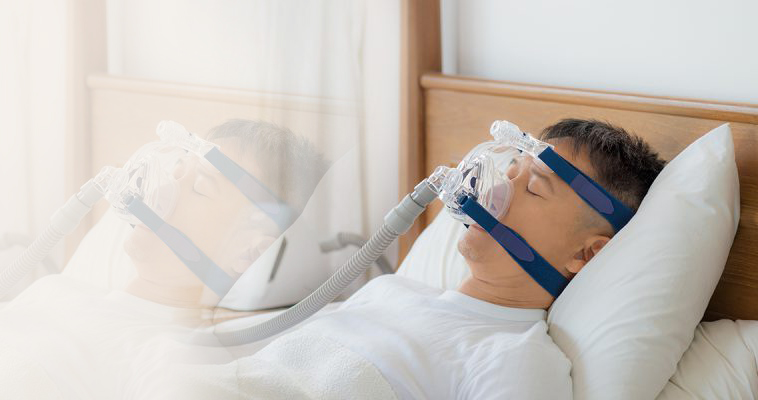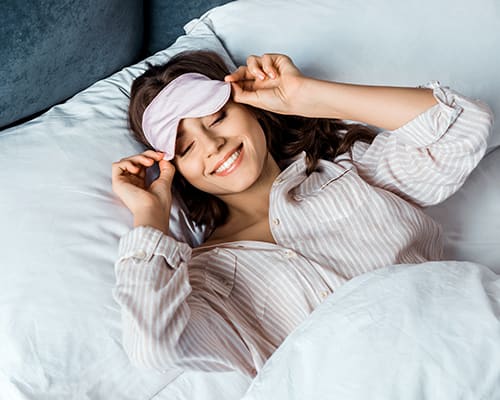Cognitive Behavioral Therapy for Insomnia (CBT-I) - Proven Methods
Cognitive Behavioral Therapy for Insomnia (CBT-I) - Proven Methods
Blog Article
Reliable Therapy Solutions for Taking Care Of Rest Disorders and Enhancing Relaxing Sleep
In the world of health care, the administration of sleep conditions and the pursuit for relaxing rest are critical elements of general health. As we navigate the detailed landscape of sleep disorders and seek to improve our rest experience, a deeper understanding of these treatment services might hold the secret to unlocking a much more rejuvenating and satisfying corrective journey.
Cognitive Behavioral Therapy for Sleep Problems (CBT-I)
Cognitive Behavioral Treatment for Sleeplessness (CBT-I) is a structured, evidence-based therapy method that focuses on addressing the hidden elements adding to rest disruptions. This sort of therapy aims to change habits and thoughts that worsen sleeping disorders, ultimately promoting healthy and balanced rest patterns. CBT-I normally involves numerous vital parts, consisting of cognitive therapy, rest restriction, stimulus control, and rest hygiene education and learning.
Cognitive treatment assists people determine and alter unfavorable idea patterns and beliefs concerning sleep that might be hindering their capacity to drop or stay asleep. Rest constraint includes limiting the quantity of time spent in bed to match the individual's real sleep period, thus increasing rest effectiveness (insomnia therapy). Stimulus control strategies aid establish a strong association between the bed and rest by urging individuals to head to bed only when drowsy and to stay clear of engaging in stimulating activities in bed
In addition, rest hygiene education concentrates on establishing healthy and balanced rest practices, such as preserving a consistent rest schedule, creating a relaxing going to bed regimen, and maximizing the sleep setting. By attending to these aspects adequately, CBT-I offers an efficient non-pharmacological intervention for managing sleeping disorders and boosting overall sleep high quality.
Sleep Hygiene Practices
Having established the structure of cognitive restructuring and behavior modifications in addressing sleeplessness via Cognitive Behavioral Therapy for Sleeping Disorders (CBT-I), the emphasis currently changes in the direction of checking out vital Sleep Health Practices for keeping optimum rest quality and total well-being.
Rest hygiene techniques include a variety of habits and environmental factors that can substantially affect one's capability to drop off to sleep and stay asleep throughout the evening. Consistent sleep and wake times, developing a relaxing going to bed routine, and enhancing the sleep setting by maintaining it dark, quiet, and cool are vital parts of good sleep health. Limiting exposure to screens prior to bedtime, preventing energizers like high levels of caffeine near to bedtime, and participating in regular physical activity throughout the day can additionally advertise much better rest top quality.
Additionally, exercising relaxation strategies such as deep breathing workouts or reflection prior to bed can help relax the mind and prepare the body for sleep. By integrating these rest health techniques right into one's daily regimen, individuals can establish a healthy rest pattern that supports relaxed rest and general health.
Relaxation Strategies and Mindfulness
Executing leisure methods and mindfulness practices can play a pivotal duty in cultivating a sense of calm and advertising high quality sleep. cognitive behavioral therapy for insomnia (CBT-I). These strategies intend to peaceful the mind, minimize stress and anxiety, and develop an ideal setting for relaxing sleep. One widely practiced method is deep breathing exercises, where individuals concentrate on slow-moving, deep breaths to kick back the mind and body. Modern muscle mass leisure involves tensing and then launching each muscular tissue group, advertising physical relaxation. Furthermore, assisted images can aid transport people to a peaceful place in their minds, aiding in stress decrease and improving sleep quality.
Mindfulness techniques, such as reflection and yoga exercise, are additionally efficient in promoting leisure and enhancing sleep. Mindfulness motivates individuals to remain existing in the minute, releasing bother with the past or future. By integrating these practices into a going to bed regimen, individuals can indicate to their bodies that it is time to prepare and unwind for sleep. On the whole, integrating leisure methods and mindfulness practices can dramatically add to handling sleep disorders and improving overall rest top quality.

Medicine Options for Rest Disorders
After checking out leisure techniques and mindfulness techniques as non-pharmacological interventions for improving sleep quality, it is necessary to think about medicine alternatives for individuals with rest problems. In situations where way of life changes and therapy do not give enough alleviation, medication can be a beneficial tool in taking care of rest disruptions.
Typically recommended medicines for rest problems consist of benzodiazepines, non-benzodiazepine hypnotics, antidepressants, and melatonin receptor agonists. Benzodiazepines, such as diazepam, are sedatives that can help induce rest, but they are normally suggested for temporary use as a result of the threat of reliance. Non-benzodiazepine hypnotics like zolpidem are additionally made use of to treat sleep problems and have a reduced danger of dependancy contrasted to benzodiazepines. Antidepressants, such as trazodone, can be useful for individuals with co-occurring depression and rest disruptions. Melatonin receptor agonists, like ramelteon, target the body's all-natural sleep-wake cycle and can be valuable for controling sleep patterns.
It is vital for individuals to speak with a healthcare provider to establish the most appropriate drug choice based upon their details sleep condition and case history.
Light Treatment for Circadian Rhythm Guideline
Light therapy, likewise referred to as photo-therapy, is a non-invasive treatment approach used to regulate body clocks and boost sleep-wake cycles. This treatment involves direct exposure to intense light that imitates all-natural sunlight, which helps to reset the body's body clock. By revealing individuals to certain wavelengths of light, typically you can find out more in the early morning or evening depending upon the preferred impact, light treatment can efficiently change the body clock to promote wakefulness throughout the day and improve restful rest at night.
Research has actually shown that light therapy can be particularly useful for individuals with body clock problems, such these details as postponed sleep stage disorder or jet lag. It can additionally be valuable for those experiencing seasonal depression (SAD), a type of depression that typically happens throughout the winter season when natural light exposure is minimized. Light treatment is typically well-tolerated and can be made use of along with other treatment techniques for sleep disorders to enhance outcomes and boost total sleep high quality.
Verdict
Finally, efficient treatment options for taking care of sleep conditions and enhancing peaceful rest consist of Cognitive Behavioral Therapy for Sleep Problems (CBT-I), sleep hygiene methods, leisure techniques and mindfulness, drug choices, and light treatment for circadian rhythm regulation. These approaches can aid people improve their sleep top quality and total wellness. It is necessary to talk to a doctor to establish one of the most ideal approach for resolving rest problems.
As we browse the complex landscape of rest disorders and look for to improve our rest experience, a deeper understanding of these therapy remedies might hold the key to opening a more rejuvenating and meeting restorative trip.
Rest limitation includes limiting the amount of time spent in bed to match the individual's actual rest duration, therefore increasing rest efficiency. Constant sleep and wake times, producing a relaxing going to bed routine, and maximizing the sleep environment by keeping it dark, peaceful, and cool are critical components of good rest hygiene. Light therapy is normally well-tolerated and can be made use of in combination with various other treatment techniques for sleep problems to optimize end results and enhance general sleep top quality.

Report this page